10 Keys on Faith and Science for Christians and Atheists
by Dr. Stacy Trasancos
Filed under Christianity and Science

On one hand, there are marvelous discourses in institutions of higher learning about the ways theology illuminates scientific ideas and, likewise, how science deepens faith. Theologians, philosophers, and scientists come together and talk, even if everyone is not a person of faith. On the other hand, the public presentation of faith and science, mostly on the internet, is a tale of incessant conflict because anyone can pose as an expert on religion or science, despite being nonreligious or never... Read More
The Appropriate Reaction to a Physical Theory of Life
by Dr. Stacy Trasancos
Filed under Science

MIT physicist, Professor Jeremy England, has gotten quite a lot of media attention about his ideas in a 2013 paper in The Journal of Chemical Physics, “Statistical physics of self-replication.” Quanta Magazine published an essay by Natalie Wolchover coining the work as “The New Physical Theory of Life,” which was republished by Scientific American and Business Insider. England was quoted: “I am certainly not saying that Darwinian ideas are wrong. On the contrary, I am just saying... Read More
On Those Circular Proofs of God
by Dr. Stacy Trasancos
Filed under Faith, The Existence of God
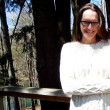
I remember the first time I read St. Thomas Aquinas’ proofs of God’s existence. Although I was already a believer and although I found them a wonderful adventure in Catholic theology, I thought they were circular. Sure, I thought, if you believe in God and you expect the proofs to prove the existence of God, then the Unmoved Mover, the First Cause, the Argument from Contingency, the Argument from Degree, and the Argument from Design all convincingly follow from postulates to conclusion. But... Read More
The Self-Defeating Argument About Intelligence
by Dr. Stacy Trasancos
Filed under Anthropology, Science

Alexander Wissner-Gross, a physicist at Harvard University and the Massachusetts Institute of Technology, and Cameron Freer, a mathematician at the University of Hawaii at Manoa, have developed an equation to describe intelligent or cognitive behaviors. They suggest that intelligent behavior can be explained as an impulse to control events in the environment. The mathematics are rooted in the theory of thermodynamics. The model relies on entropy, the mathematically-defined thermodynamic quantity... Read More
Why the Church is Ahead of Mathematicians on Ecumenical Dialogue
by Dr. Stacy Trasancos
Filed under Atheism, Religion, Science

A Stanford School of Engineering research team has developed a new mathematical model for how society becomes polarized, published in the March online edition Proceedings of the National Academy of Sciences. These models are similar to models that seek to predict the behavior of matter based on certain known modes of action, and they are always more difficult for human systems because humans are, inherently, unpredictable (that free will thing). However, they are not without benefit. Opinionaters,... Read More
What if We Lived in a Simulated Universe and Worshiped a Pimply Teenager?
by Dr. Stacy Trasancos
Filed under Cosmology, The Existence of God
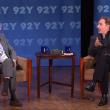
Because the audience at Strange Notions is a combination of Catholics and atheists, I thought the comments in this interview between Brian Greene and Richard Dawkins would be a fun change of pace for a discussion. Here's a summary of the interview. Dr. Nick Bostrom, a philsopher at the University of Oxford, proposed an argument that in the future we will have powerful supercomputers that can create universes 'in silico.' In these simulated universes, sentient beings will exist unaware they are... Read More
God, Professors, and Evolutionary Biology Classes
by Dr. Stacy Trasancos
Filed under Christianity and Science, Evolution

Professor David P. Barash recently wrote an opinion column in the New York Times titled “God, Darwin and My College Biology Class.” Professor Barash is in the psychology department at the University of Washington. He teaches courses on sociobiology. He explained in his essay why he gives undergraduate students “The Talk.” No, it’s not about sex. The Talk is about faith and science. He says: "And that’s where The Talk comes in. It’s irresponsible to teach biology without evolution,... Read More
The Stillbirth of Science in Arabia
by Dr. Stacy Trasancos
Filed under Christianity and Science
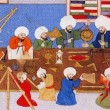
NOTE: Today we wrap up our weekly series of essays by Dr. Stacy Trasancos on the "stillbirths" of science. They're based on Fr. Stanley L. Jaki's research into the theological history of science in the ancient cultures of Egypt, China, India, Babylon, Greece, and Arabia. See past articles here. The last culture to be examined is that of the Muslims. Although theirs was a monotheistic view, it was not a Christological or Trinitarian view, which left it vulnerable to a monotheism that approached... Read More
The Stillbirth of Science in Greece
by Dr. Stacy Trasancos
Filed under Christianity and Science
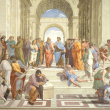
NOTE: Today we continue our weekly series of essays by Dr. Stacy Trasancos on the "stillbirths" of science. They're based on Fr. Stanley L. Jaki's research into the theological history of science in the ancient cultures of Egypt, China, India, Babylon, Greece, and Arabia. See past articles here. Like other great civilizations, the contributions and skill of the ancient Greeks cannot be dismissed. Probably more has been written about Greek intellectual history than any other ancient culture.... Read More
The Stillbirth of Science in Babylon
by Dr. Stacy Trasancos
Filed under Christianity and Science
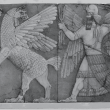
NOTE: Today we continue our weekly series of essays by Dr. Stacy Trasancos on the "stillbirths" of science. They're based on Fr. Stanley L. Jaki's research into the theological history of science in the ancient cultures of Egypt, China, India, Babylon, Greece, and Arabia. See past articles here. In The Savior of Science, Jaki mentioned the history of science among cultures that communicated and developed in succession–Babylon, Greece, and Arabia. Knowledge was transmitted to the Sumerians... Read More







